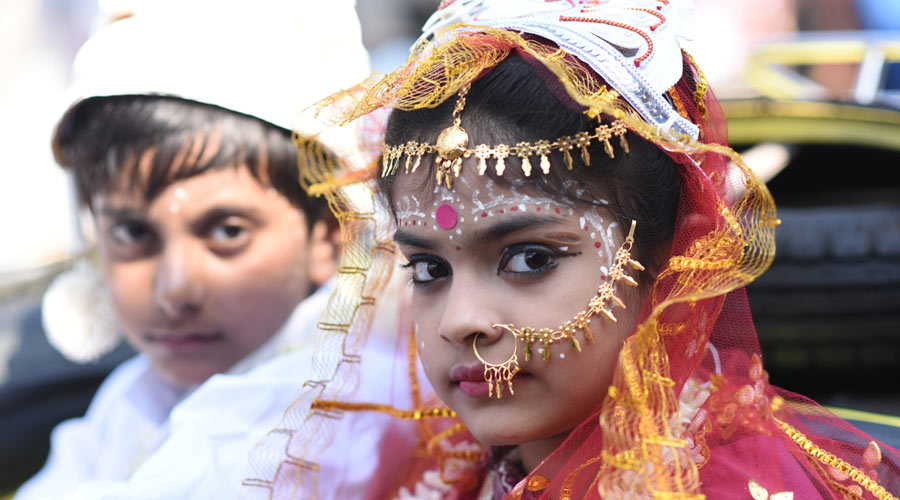The state commission for the protection of child rights is holding sessions in schools to teach students about their rights, child marriage, elopement and various aspects of Pocso (Protection of Children from Sexual Offences Act).
The workshops had been put on hold because schools were closed for two years in the Covid pandemic.
The commission has resumed the sessions and is visiting schools to talk to students.
The idea behind the lessons is to sensitise children, give them the courage to speak up and not keep any violation they may suffer under wraps because of a false sense of shame or guilt.
The workshops are being conducted for students of classes VIII to XII in government schools, government madrasas and private institutions.
“The programme has become more important because in the last two years, there was an educational waste. Children got used to not going to school and their focus in life shifted. There have been cases of child marriage and elopement. It is all the more important now to bring the students back on course and tell them how harmful child marriage is,” said Ananya Chatterjee Chakraborti, chairperson, West Bengal Commission for Protection of Child Rights (WBCPCR).
Chatterjee Chakraborti said that the last two years saw a complete breakdown of communication for a large section of students who could not meet their friends or teachers. The reopening of schools has seen a restoration of that communication.
Children often confide in their friends or favourite teacher.
During the workshops, those conducting them narrate incidents or show the students paper clippings of an abuse or violation.
This helps students understand what a violation is and encourages them to speak up.
“They have to be given the courage to speak out, even if it is against a close family member,” said Yashabanti Sreemany, counsellor and member, WBCPCR.
“There have been instances where after a session, students walk up to share their experiences. The sensitisation includes telling them that nobody can do anything with them and if they complain, be it for themselves or for others, they will not land in trouble,” said Susmita Chanda, programme consultant.
Chanda said in-person interactions help them read a child’s expression to understand what he or she may be thinking.
Cases of elopement during the pandemic-induced lockdown happened because many girls thought that could ensure a better life.
“But we tell them of the consequences. We also sensitise boys and tell them that when caught they will be held under the law, something that they are unaware of,” said Chanda.
The workshops are conducted in co-educational institutions because sensitisation of boys is equally important.
“Boys are as vulnerable as girls and they are also violated,” said Sreemany.
